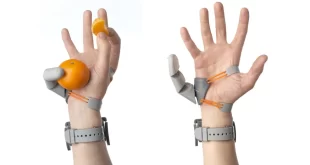We seek to appoint up to 5 quantitative Environmental Scientists on the topic of Land Use & Ecosystem Change as either post-doctoral researchers or PhD students. The successful candidates will undertake research on the integrated impacts of societal, environmental and policy change on land use and ecosystems at large spatial scales (national to global), including contributing to the LandSyMM modelling framework (https://landsymm.earth/). We would like you to join us to work on one or more of the following topics and associated research questions.
- Modelling land use change in Europe using the CRAFTY agent-based model (https://landchange.imk-ifu.kit.edu/CRAFTY). You will further develop the CRAFTY large-scale model of land systems to simulate the social processes that underpin the behaviour and decision-making of land managers and the supply and demand of ecosystem services to society. Key research question: how do social processes and human behaviour underpin land use decision-making?
- Identifying the potential for ecosystem restoration, including rewilding, in Europe. You will combine outputs from the CRAFTY model with further spatial datasets (e.g. opportunity costs, high nature value farming, wetlands, peat-lands, species distributions, protected areas and their connectivity) to evaluate where ecological restoration is best situated in Europe, accounting also for displacement effects (indirect land use change within and outside of Europe). Key research question: where in Europe is there space for restoring and rewilding ecosystems?
- Reconstructing past land management change, and environmental impacts at the global scale. You will extend the HILDA+ historic land use change database (https://landchange.imk-ifu.kit.edu/hilda) to include land management intensity (e.g. agricultural management or forestry). You may also apply these data to study environmental impacts, particularly on ecosystem carbon and nutrient flows, using the LPJ-GUESS dynamic global vegetation model (https://landsymm.earth/our-modules).Key research question: how have past changes in land use and management intensity affected ecosystems globally?
- Exploring the consequences of disruptive technology scenarios for the global food system. You will analyse the role of technologies such as vertical farming, gene-editing and cultured meat, in decoupling food production from the land, providing potential opportunities for ecological restoration and land-based climate change mitigation. Key research question: how will novel food production methods transform the land system?
- Evaluating the impact of international trade and environmental policy on land use and ecosystems. You will combine data analysis methods with a global scale, land use change model (PLUM; https://landsymm.earth/our-modules) to assess how trade in land-based commodities and related policies will affect land use transitions in the future. This includes further development of PLUM to consider bi-lateral trade arrangements and trade agreements. The study will be undertaken in collaboration with the University of Edinburgh, as a partner in the LandSyMM network, and may involve extended research visits to Edinburgh. Key research question: how do international trade and environmental policies influence global health and ecosystem outcomes?
The successful applicants will be funded through two EU-funded research projects (see annex) and the Helmholtz Association Excellence Recruiting Initiative, which supports the Land Use Change & Climate (LUCC) Research Group (https://landchange.imk-ifu.kit.edu/) of the Karlsruhe Institute of Technology (KIT). The positions will be located at KIT’s attractive ‘Campus Alpin’ in Garmisch-Partenkirchen, Germany. You will be welcomed into a multi-disciplinary, highly collaborative and friendly team, well connected to national and international research networks and activities. The positions will entail contributions to project management and reporting, willingness to engage with stakeholders and some teaching.
Salaries will range from €48,892 to €55,430 gross per annum for the post-doctoral positions depending on qualifications and experience based on the Collective Agreement for the German Public Service Sector (TV-L EG13, St. 1-3). PhD students will be funded through a stipend (studentship), which is currently ca. €20,400 per annum (tax free) with additional family allowances and contributions to health insurance. The positions are available from June 2023 for up to 4 years with an initial 2-year contract.
Qualifications
You will have a PhD or Master’s degree in a relevant discipline such as environmental sciences, geo-ecology, geography, spatial ecology, ecological economics, computational social sciences, mathematics and informatics. You will also have skills in one or more of the following:
- quantitative environmental modelling;
- computer programming (e.g., Java, Python, C++);
- the analysis of large-scale datasets in the environmental sciences;
- scenario analysis, environmental policy analysis, statistical analysis and ecosystem assessment.
You will need to have proficiency in the English language, both spoken and in writing. Willingness to travel to interact with consortia partners is required. Further information can be obtained from Prof. Mark Rounsevell (mark.rounsevell@kit.edu).
Applications
Applications should be sent by email to Sylvia Kratz (sylvia.kratz@kit.edu) by Friday 31 March 2023, quoting the reference, 5MR2023. Applications should be submitted within a single PDF document that includes your CV, publications list (with citations), a short (1-2 page) letter of motivation and contact details for 2 referees. The motivation letter should clearly state a) whether you are applying for a post-doctoral or PhD position, b) your skills and experience in land use & ecosystem change, and c) how your research interests relate to the topics given above. Please also indicate where you heard about this job opportunity. Applications that are incomplete or do not address these criteria will not be considered.
Interviews will be held remotely on 19-21 April 2023.
KIT strives to achieve gender equality at all levels of employment and we particularly encourage applications from women. With appropriate qualifications, applications from persons with handicaps are treated preferentially.
ANNEX – Brief EU project descriptions
Joined-up land use strategies tackling climate change and biodiversity loss (MOSAIC)
Urgent and concerted action can stop and reverse unsustainable land use and the over-exploitation of land resources. This will however require rapid, simultaneous and coordinated action by a diversity of land use decision makers. MOSAIC aims therefore to achieve the following objectives:
1. To gain a comprehensive understanding of the motivations and drivers behind land use decisions (e.g. cultural factors, social identities, cognitive frameworks, market prices, legal frameworks, etc.), including their relative importance and interactions, within and between relevant governance levels, ranging from individual land managers to supra-national organisations.
2. To gain a thorough understanding of the awareness of key land use decision makers about climate change, biodiversity loss and renewable energy challenges, and their willingness to address these challenges.
3. To characterise future land use patterns based on spatial, social and economic models that integrate key insights into the motivations and drivers behind land use related decisions and the result of these decisions in causing displacement effects, i.e. indirect land use changes in other parts of the world.
4. To support policy design and implementation for climate change, renewable energy and biodiversity, by means of innovative cost-effective instruments and approaches co-created in policy labs contributing to and elaborating on MOSAIC’s research results in a transdisciplinary way.
5. To develop an interactive digital learning environment, embedded within a digital toolbox comprising proven technologies and approaches consistent with long-term European sustainability goals and strategies to support land use decision processes at governance levels ranging from local to supra-national scales.
Interdisciplinary SSH research linked to state-of-the-art land use modelling will be core to this project, and will be embedded in a transdisciplinary research approach based on policy labs.
Climate-smart rewilding: ecological restoration for climate change mitigation, adaptation and biodiversity in Europe (wildE)
Terrestrial ecosystems throughout Europe face the twin threats of climate change and the loss of biodiversity. Rewilding could be an important ecological restoration solution to mitigate negative effects. The rewilding approach proposes to “let nature take care of itself” (often with temporary help at first) and benefit from natural processes to adapt ecosystems to climate change and support their biodiversity. The wildE project aims to assess and improve the potential of climate-smart rewilding as a nature-based solution for ecological restoration in Europe.
This multidisciplinary research and innovation programme will address the link between climate and biodiversity in close association with the socio-economic dimension of large-scale restoration. It compares scenarios from various land uses, assesses associated risks and opportunities, and explores new approaches to make ecological restoration a socially and economically viable solution for local actors and communities. wildE will provide scientific knowledge, methods and tools for different geographical, ecological and social contexts, based on Europe-wide studies as well as individual case studies.
The aim of the project is to help policy makers (the EU, national governments, regions, local communities) and commercial companies to integrate ecological restoration through rewilding into their policy or management, to achieve carbon neutrality, strengthen climate adaptation and reverse biodiversity loss.
These results will be widely communicated to a broad range of stakeholders (land owners, conservation managers, companies, society at large, etc.) to improve everyone’s knowledge of these challenges and opportunities. This interactive sharing will be made possible in particular through a collaborative web platform, which will also function as a shared workspace for stakeholders.
Job Features
| Job Category | Doctorat, Postdoctoral |
 Etudes Non Stop Study Non Stop
Etudes Non Stop Study Non Stop



